Peking University, April 7, 2025: Aneka Rebecca Rajbhandari, a political science graduate from Peking University, founder of the Araniko Project, has spent nearly a decade in China, forging a unique path as a scholar, researcher, and advocate for stronger Nepal-China relations. To her, promoting cultural exchange and mutual understanding has turned from a passion to a lifelong career shared with her family.
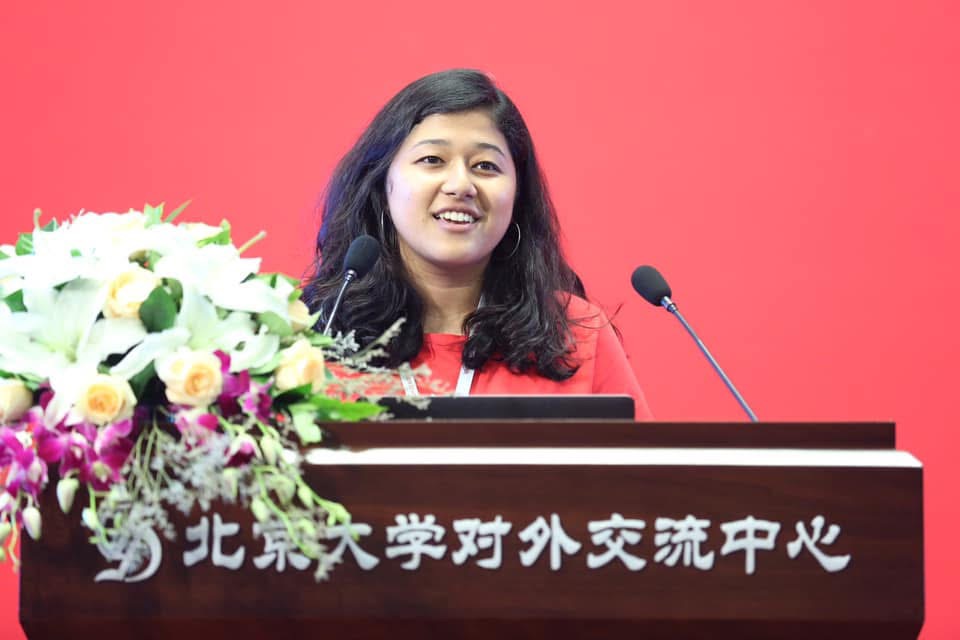
Aneka delivers a speech at the 2019 LSE-PKU Summer School Opening Ceremony
"PKU helped me discover my true academic direction: studying China. There couldn’t be a better place than PKU to pursue this field.”
A Shared Journey at Peking University
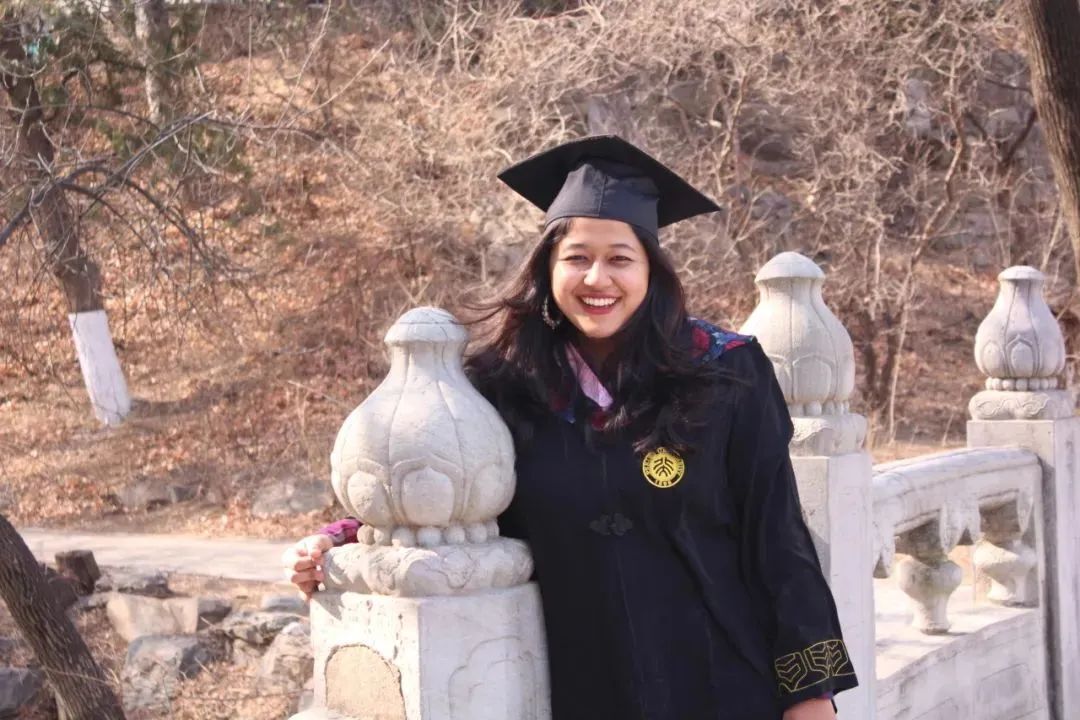
Aneka's Undergraduate Graduation Photo
Her journey began in 2008 when she raised funds for victims of the Sichuan earthquake, a gesture that marked the start of her connection with China. Years later, she became the first Nepali to graduate from Peking University with an undergraduate degree, taught entirely in Chinese.
Aneka's dedication to fostering understanding between Nepal and China culminated in co-founding The Araniko Project, a research advisory firm dedicated to bridging knowledge gaps in Nepal-China relations. Over three years, Aneka has co-authored numerous reports and articles that have been featured in national and international media. Now it has become a shared pursuit between Aneka and her husband Raunab Singh Khatri (孔仁星).
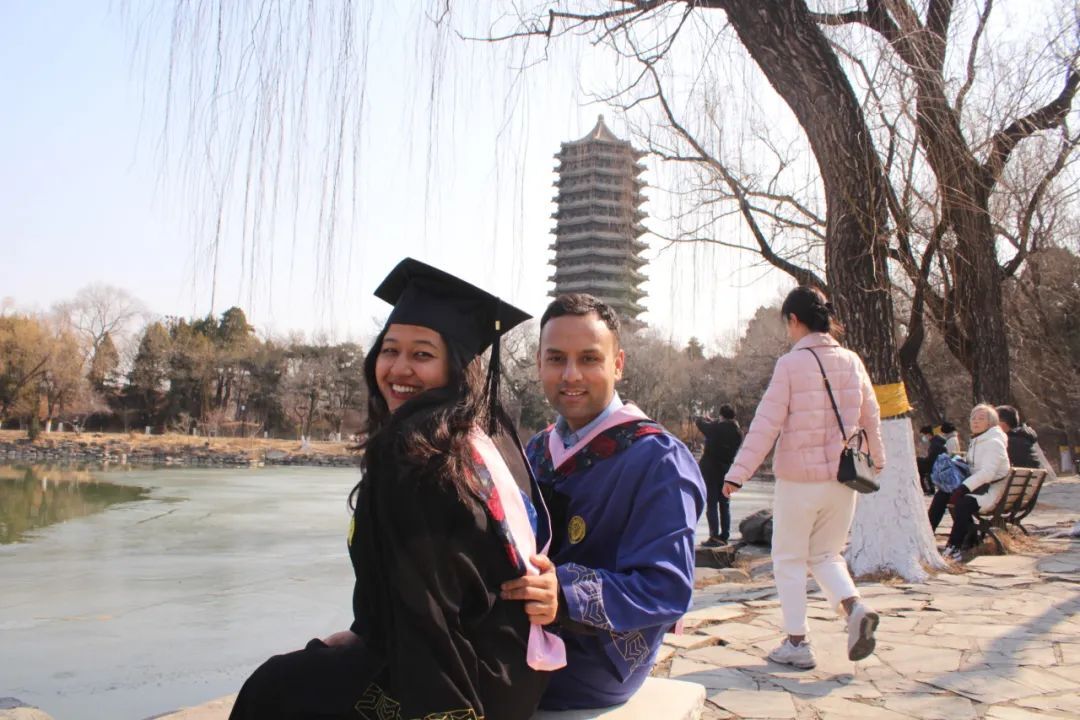
Aneka and her husband Raunab
Aneka met Raunab nearly eight years ago on the campus of Peking University, where she was beginning her undergraduate studies and he was pursuing a Master's degree. Bonded by shared academic interests and a deep connection to their Nepali heritage, the couple married in February 2024. Today, while Aneka continues her studies, Raunab is pursuing a Ph.D. at the Guanghua School of Management. Together, they have expanded The Araniko Project, combining their expertise to strengthen Nepal-China ties.
Honoring a Legacy of Cultural Exchange
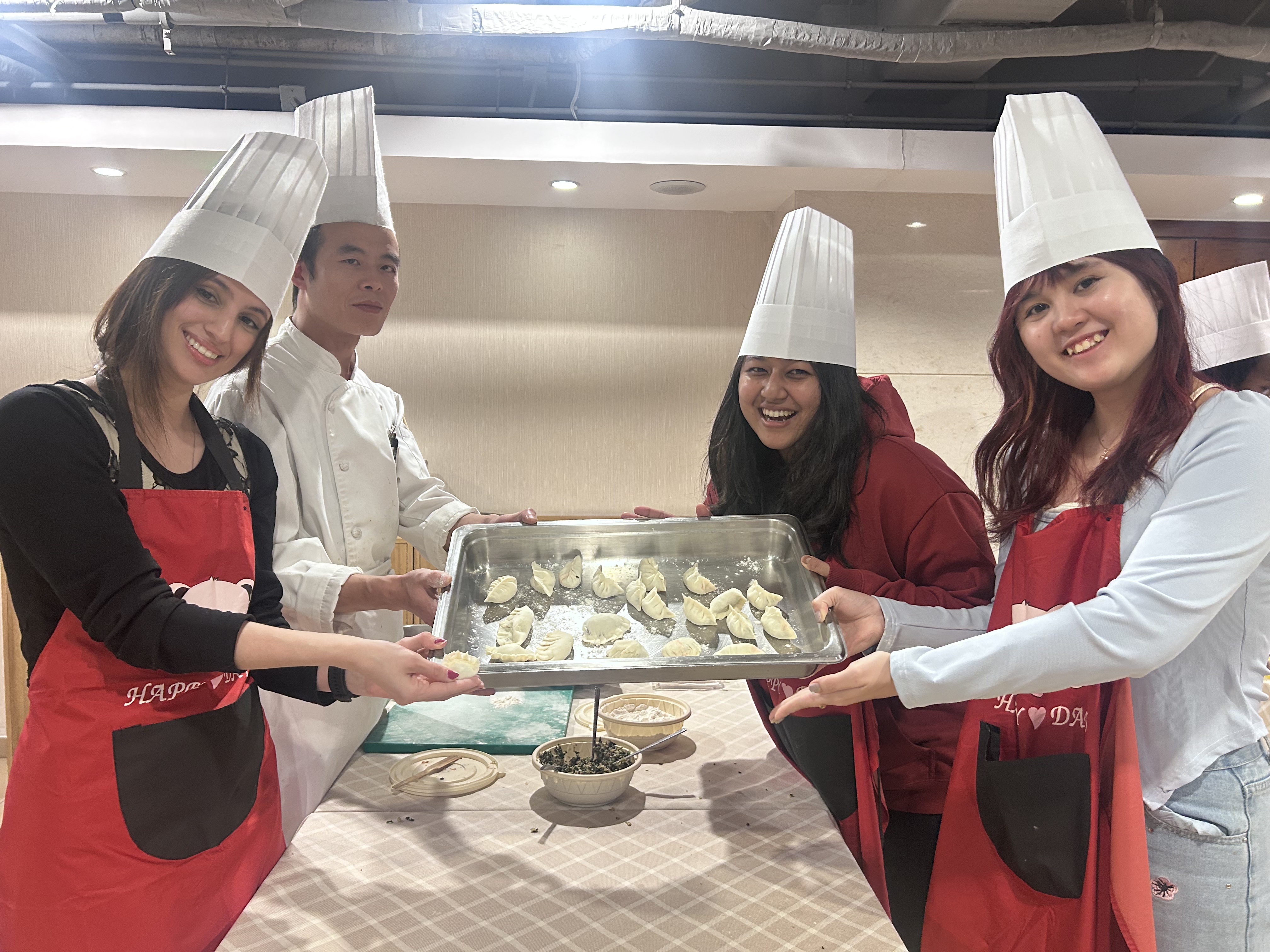
Aneka engages in a dumpling-making cultural activity
The name "Araniko" pays homage to the 13th-century Nepali artist who introduced Nepali art to China during the Yuan Dynasty. His most notable work, the White Stupa in Beijing's Miaoying Temple, stands as a testament to the enduring cultural exchanges between the two nations.
For Aneka, this legacy serves as inspiration. Through her research and writing, she highlights historical moments of diplomacy, such as King Narendra Dev's gift of spinach to the Tang Emperor and Deng Xiaoping's 1978 visit to Nepal, which included symbolic gifts of a Metasequoia plant and a piece of the Great Wall. Aneka believes such stories of cultural diplomacy are vital to understanding and strengthening modern relations.
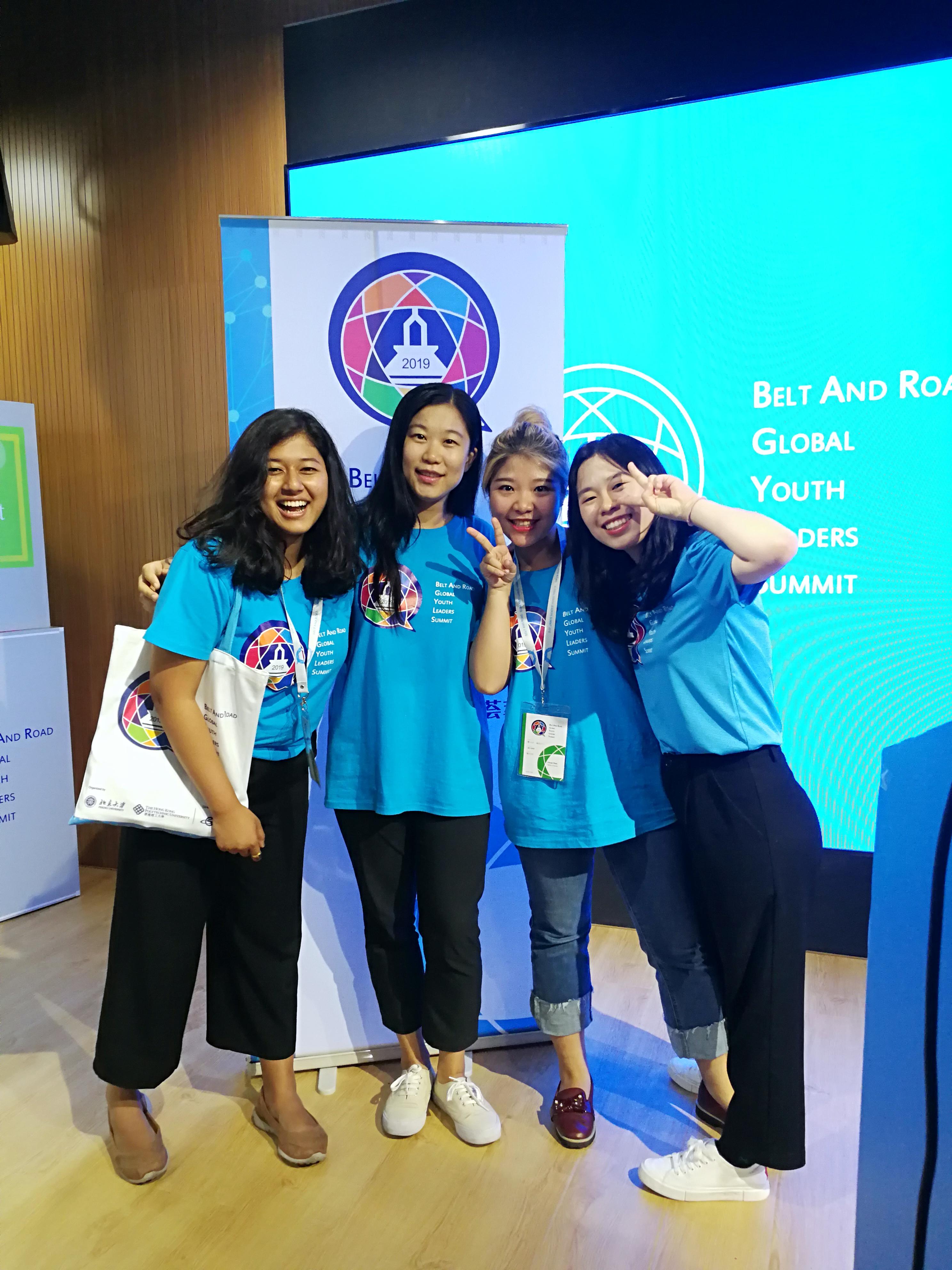
Aneka (first left) participates in the 2019 Belt and Road Youth Forum
Nepal-China Relations: Opportunities and Challenges
Nepal's strategic location, bordering China to the north and India to the south, places it at the crossroads of South Asia, making it necessary to understand its two giant Asian neighbors, which can be difficult due to linguistic and cultural differences. However, Aneka sees great potential in initiatives like the Belt and Road Initiative (BRI), the Confucius Institute, and Chinese scholarship programs, which have opened avenues for greater understanding and collaboration.
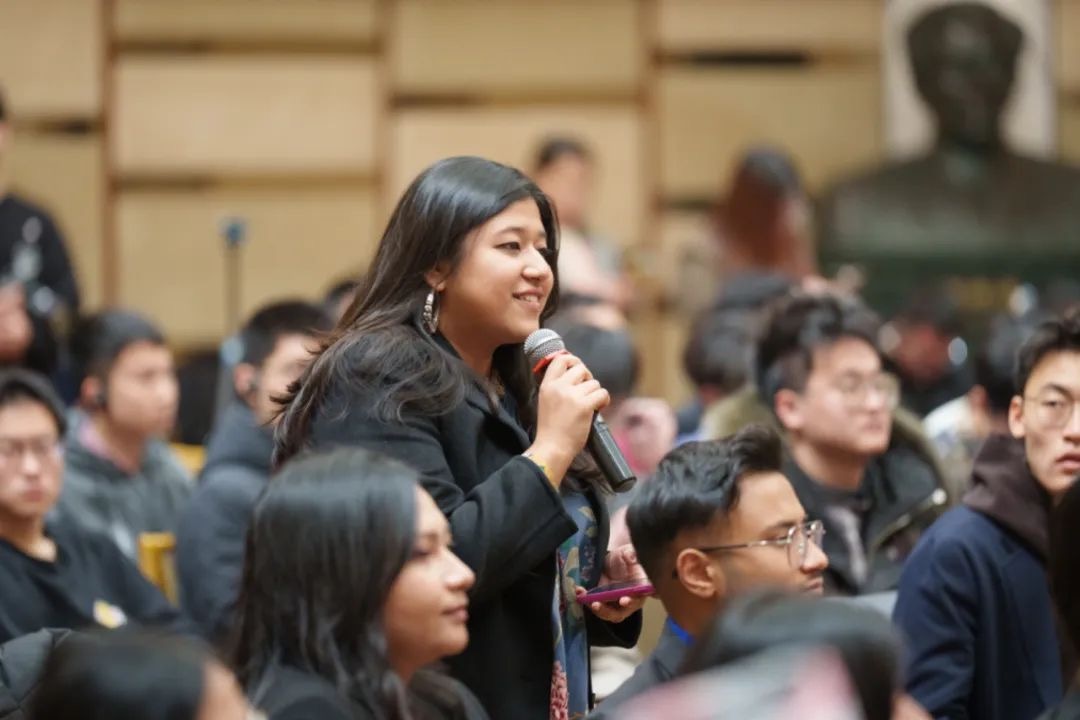
Aneka poses a question to the Prime Minister of Nepal
During Nepali Prime Minister K.P. Sharma Oli's visit to Peking University in December 2024, Aneka had the chance to attend his address in person and to ask him about the impact of BRI in Nepal. The Prime Minister shed light on bilateral cooperation on infrastructure development in the country and expressed high hopes for the younger generation in cultural exchanges.
"It was a truly exciting experience to witness the Nepali Prime Minister and his delegation visit PKU for the first time. It was an honor to be selected to ask the Prime Minister a question about the future of the Belt and Road Initiative (BRI) in Nepal."
A Vision for the Future
As she marks a decade since her arrival in China, Aneka remains deeply committed to her mission. At the heart of her vision is addressing Nepal's brain drain and promoting the country's rich historical ties with China. She hopes to inspire young Nepalis to engage with their nation's heritage and opportunities, bridging gaps and creating meaningful connections.
Through "The Araniko Project", Aneka aims to bring a Chinese perspective on Nepal to the world. She believes that understanding history is essential to building strong international relations and is dedicated to sharing these insights with a global audience.
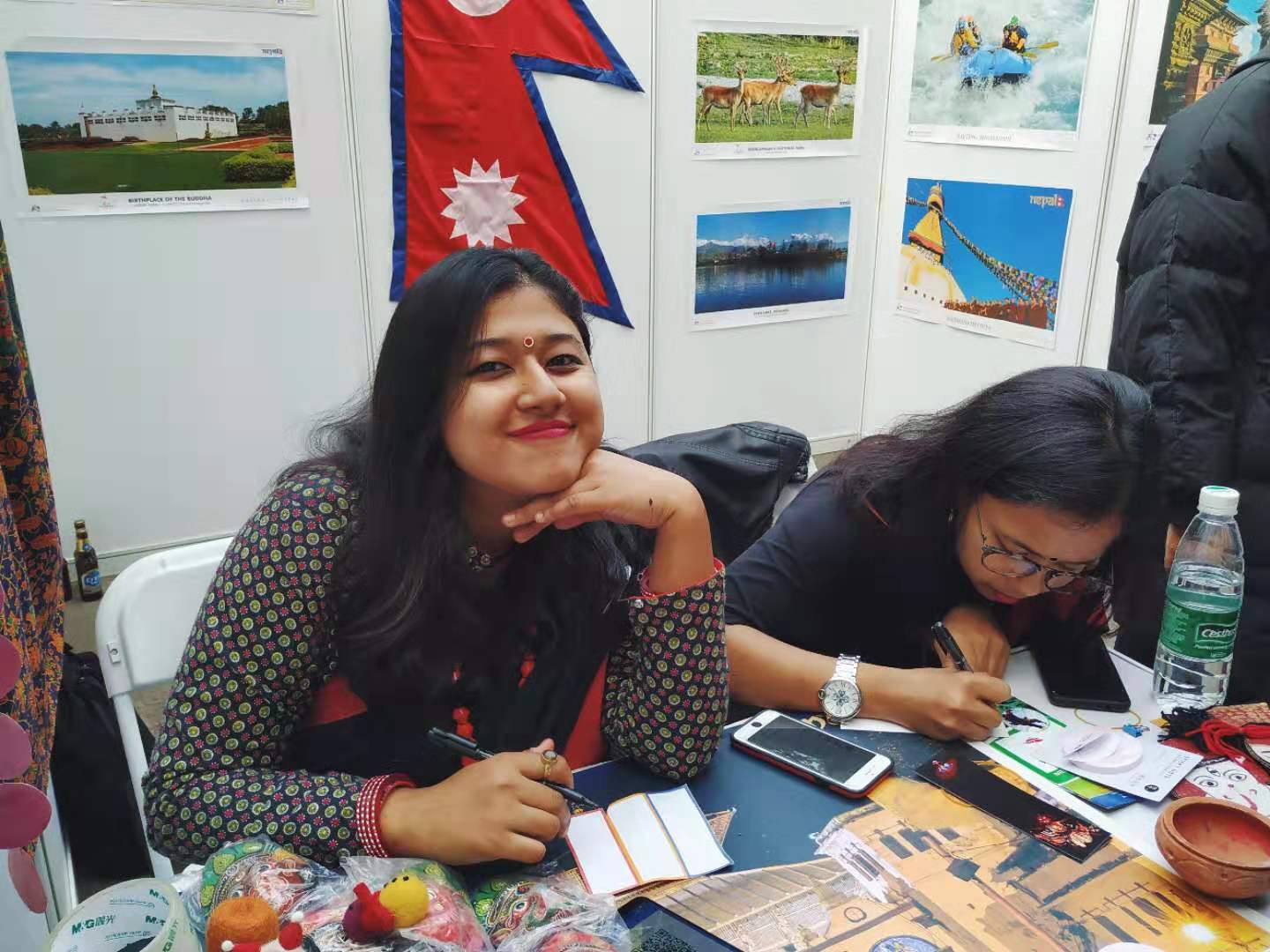
Aneka attends the Peking University International Cultural Festival
Aneka Rebecca Rajbhandari's journey is a testament to the power of cultural diplomacy and academic perseverance. As she continues on this sacred mission, she embodies the enduring spirit of exchange and cooperation that has defined Nepal-China relations for centuries.
Writer: Jawad Shabbir
Editor: Chen Shizhuo






